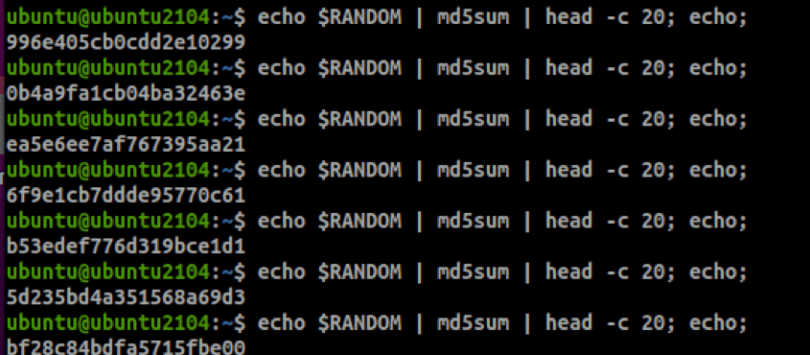

- #PAWS RANDOM UUID GENERATOR GENERATOR#
- #PAWS RANDOM UUID GENERATOR PORTABLE#
- #PAWS RANDOM UUID GENERATOR ISO#
- #PAWS RANDOM UUID GENERATOR MAC#

The check is done with the _cpp_lib_span feature-test macro. This is used by default, if the header is supported by your compiler. If you use the library in a project built with C++20, then you can use std::span.
#PAWS RANDOM UUID GENERATOR MAC#
The library is supported on all major operating systems: Windows, Linux and Mac OS.
#PAWS RANDOM UUID GENERATOR PORTABLE#
This was fixed in GCC 9.2.Ī portable alternative is to use the Boost.Random library. See Bug 85494 - implementation of random_device on mingw is useless. In this case each std::random_device object may generate the same number sequence.

a hardware device) is not available to the implementation. Std::random_device may be implemented in terms of an implementation-defined pseudo-random number engine if a non-deterministic source (e.g. If you generate uuids using the basic_uuid_random_generator and std::random_device to seed a generator, keep in mind that this might not be non-deterministic and actually generate the same sequence of numbers: Uuid id = uuids::uuid::from_string(str).value() The following is a list of examples for using the library: See the revision history of the proposal for history of changes. This library is an implementation of the proposal P0959.Īs the proposal evolves based on the standard committee and the C++ community feedback, this library implementation will reflect those changes. To write a UUID to an output stream using the canonical textual representation.Ĭreates a string with the canonical textual representation of a UUID. Although this operation does not make much logical sense, it is necessary in order to store UUIDs in a std::set. Namespace ID for name-based uuids when name string is an X.500 DN, in DER or a text output format (See, ).įor UUIDs comparison for equality/inequalityįor comparing whether one UUIDs is less than another.
#PAWS RANDOM UUID GENERATOR ISO#
Namespace ID for name-based uuids when mame string is an ISO OID (See, ). Namespace ID for name-based uuids when name string is a URL. Namespace ID for name-based uuids when name string is a fully-qualified domain name. Specialization of hash for uuid (necessary for storing UUIDs in unordered associative containers, such as std::unordered_set) It is available only if the UUID_TIME_GENERATOR macro is defined. Note:This is an experimental feature and should not be used in any production code. It is available only if the UUID_SYSTEM_GENERATOR macro is defined.Īn experimental function object that generates time-based UUIDs. Note: This is not part of the standard proposal.
#PAWS RANDOM UUID GENERATOR GENERATOR#
The following types and utilities are available:Ī class representing a UUID this can be default constructed (a nil UUID), constructed from a range (defined by a pair of iterators), or from a span.Ī strongly type enum representing the type of a UUIDĪ strongly type enum representing the version of a UUIDĪ function object that generates version 4 UUIDs using a pseudo-random number generator engine.Ī basic_uuid_random_generator using the Mersenne Twister engine ( basic_uuid_random_generator)Ī function object that generates version 5, name-based UUIDs using SHA1 hashing.Ī function object that generates new UUIDs using operating system resources ( CoCreateGuid on Windows, uuid_generate on Linux, CFUUIDCreate on Mac) A Universally Unique IDentifier (UUID) URN NamespaceĪlthough the specification puts the uuid library in the std namespace, this implementation uses the namespace uuids for this purpose, in order to make the library usable without violating the restrictions imposed on the std namespace.A UUID is a 128-bit number used to uniquely identify information in computer systems, such as database table keys, COM interfaces, classes and type libraries, and many others. A C++17 cross-platform single-header library implementation for universally unique identifiers, simply know as either UUID or GUID (mostly on Windows).


 0 kommentar(er)
0 kommentar(er)
